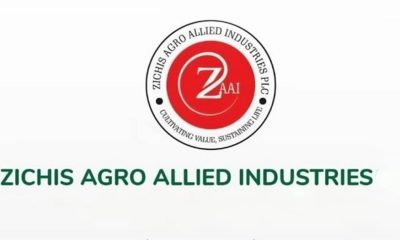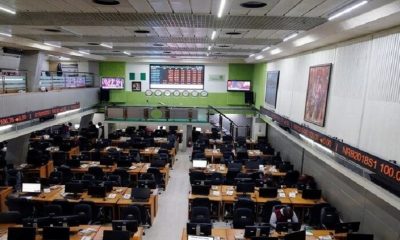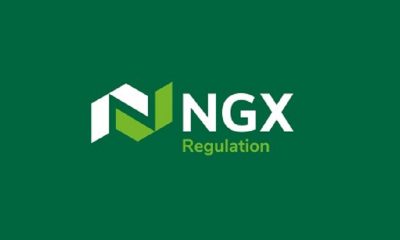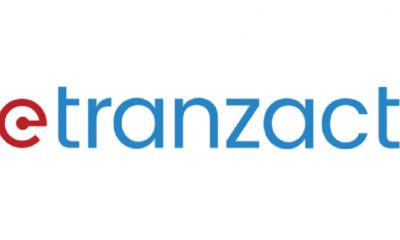Economy
Nigeria’s Stock Market in N10b Fraud Mess
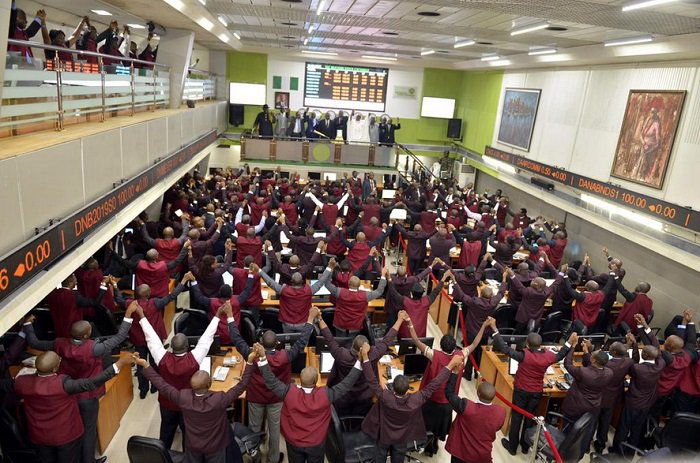
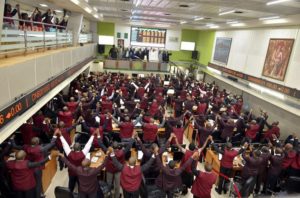
By Modupe Gbadeyanka
Just when the Nigerian Stock Exchange (NSE) is working very hard to boost and restore confidence of investors in the market, a scandal that may scare off investors in rearing its ugly head.
It is very certain that efforts by Nigeria to grow its capital market mainly depend on having confidence in the market, institutions and regulators, including the NSE and the Securities and Exchange Commissions (SEC).
The latest mess in the stock market has been attributed to poor handling of infractions and enforcement of discipline among operators.
A stock broking firm, Partnership Securities Limited (PSL), and its sister companies – Partnership Investment Company Plc; Life Care Partners Limited; and SBDC Microfinance Bank Limited, are embroiled in alleged N10 billion scandal, based on official estimates, relating to diversion and misappropriation of funds.
Given the level of the infraction by some operators, analysts are puzzled as to why the regulators, the SEC; the NSE; and the Central Security Clearing System (CSCS), are unable to effectively deal with such sharp practices.
According to those who spoke with The Guardian, which has been investigating the scandal, “Nigeria’s efforts to grow its capital market are dependent upon having confidence in the market, institutions and regulators.”
According to petitions to the regulators, the N10 billion quoted involved a series of transactions on behalf of various clients in which the Chairman and Chief Executive Officer of Partnership Securities, Victor Ogiemwonyi, is identified as the chief protagonist.
But the unwholesome practices came to a climax in the case involving approximately 96,077,872 shares of Ecobank Transnational Incorporated (ETI), valued around N1.24 billion and an additional $80,000 from accrued dividend owned by a former ETI chief executive, Arnold Onyekwere Ekpe.
Confirming the imbroglio, Ekpe’s lawyers, Sofunde Osakwe Ogundipe & Belgore, told The Guardian that based on previous relationship, the client gave PSL an exclusive mandate to dispose of his shares in ETI after retiring from the company at N16 per share within three months spanning July to September, 2016.
In compliance with the CSCS rule for such transactions, Ekpe, according to the documents obtained by The Guardian, filled in a number of forms including the CSCS account creation form, client’s bank details, and the investor’s bank account update form for direct settlement, all of which contained his bank details.
Under the CSCS rules, cash payments from such NSE Automated Trading System (ATS) are automatically made into the client’s account, except if declined by the client and then paid into the broker’s account in compliance with Rule 16:3 of the Direct Cash Settlement.
Sub-section C2 states: “Any client that declines direct cash payment into its account provided to CSCS shall notify it of that fact by completing a direct cash settlement notification form in which the client shall make its preference known.”
It is unclear how the CSCS got into paying the proceeds into Ogiemwonyi’s account rather than Ekpe’s, thereby exposing regulatory weaknesses in the operation of the ATS and DCS, as the scheme is meant to stamp out misappropriation of investors’ funds by stockbrokers.
Unable to defend its negligence, a top CSCS official, who preferred anonymity, in response to The Guardian’s enquiry on the matter, merely said: “I cannot speak to you on it. We are not yet at that stage to issue a press release, it is inconclusive for now. Whenever we are through, we will speak. The case just came up, it just came to light.”
In a two-paragraph letter, on his company’s letterhead, to Ekpe, dated October 17, 2016 and titled “Admission of Outstanding Indebtedness of N1,237,245,095 and $80,000 to Mr. Arnold Ekpe,” which was obtained by The Guardian, Ogiemwonyi acknowledged the mandate.
Apart from confirming that the shares were sold at a fixed price of N16 per share, the letter, signed by Ogiemwonyi, read in part: “The shares were sold by us for a total sum of N1,537,245,952 out of which N300,000,000 has been paid.”
The letter further admitted: “We confirm that outstanding proceeds from the sale have been misappropriated by us,” and the writer promised to meet the obligation of the outstanding balance of about N1.24 billion and $80,000.
However, estimates on the actual amount of funds allegedly misappropriated by Ogiemwonyi and his companies could be much more than the N10 billion quoted by SEC in its investigations, given the plethora of petitions by many other clients to the regulators.
An official memo from SEC to the Managing Director, Partnership Investment Company Plc, dated November 18, 2016, with reference: SEC/ENF/INVTG/CMOF4284/16, on “Findings of the Special Examination Conducted on Partnership Investment Company Plc (PICP), and Partnership Securities Ltd. (PSL) between 7 and 11 November 2016,” confirmed alleged shady activities of the companies.
The memo, obtained by The Guardian, is based on a “joint target inspection” conducted by the commission and the Nigerian Stock Exchange on PICP and PSL, assessing their investment products offerings from 2008.
Findings in sections 7-9, revealed:
- “That the firms’ operations did not maintain separate accounts for all clients’ funds as there was clear evidence of comingling of funds. A review of PSL’s trading Account No … with Access Bank showed direct withdrawals of funds which were used for purposes other than trading on behalf of the firm’s clients;
- “That in the December 31, 2015 audited financial statements of the firms filed with commission, the total deposit from customers was stated as N1,607,844,000. However, a review of the group’s asset management activity report as at December 31, 2015 revealed a liability of N10,494,961,104.95. The firms therefore understated the liability of total deposit from customers by 84.7%; and
- “That a client of PSL, Ekpe, gave the firm a mandate to sell 96,077,872 units of Ecobank ETI at the price not less than N16 per share and also filled in a direct settlement mandate that the proceeds be remitted directly into his account. The shares were however sold at a cumulative average price of N13.49 per share. The proceeds of sale, the sum of N1,237,245,095 was thereafter misappropriated by the firm.”
The SEC/NSE joint target inspection further revealed that the commission received 40 complaints from clients of the firms on their Partnership Securities Deposit Account (PSDA), which are still pending. Prodded further on what SEC is doing regarding the litany of complaints, and the Ekpe’s case in particular, the commission blamed Partnership Securities for its lack of transparency, promising that the matters would be resolved this week.
SEC’s spokesman, Naif Abdullahi, told The Guardian last week Thursday that “The investor filled in a form for direct cash settlement but the broker sat on it. The commission just concluded its investigation on the issue last week, and by next week the issue will be resolved.” He explained that “In direct cash settlement, you have to indicate whether you are opting in or out. It is now that we want to make it compulsory that every transaction must settle for direct cash settlement so that there is no room for all these practices.”
But a spokesman for Partnership Securities, who spoke anonymously, described the ETI saga as a business gone awry between friends. “They are friends and that is why what happened, happened. Maybe our managing director was not expecting that Mr. Ekpe could take such actions against him because of their friendship. The case is still in the court and there is a limit to which I can speak on it.”
The huge number of complaints and amount involved, market watchers believe, could have been resolved if the regulators had acted fast, especially NSE, on whose platform many of the frauds were allegedly perpetrated, with many suspecting possible cover-up and collusion to sustain the criminality. However, in a long and detailed official response to The Guardian’s probe, the exchange insisted it “has a zero tolerance policy for infractions and treats all dealing members alike.”
Specifically, on the ETI transaction, the exchange said: “Following receipt of the complaint dated 16 October 2016 by Ekpe against PSL, the exchange immediately took the following actions: “The exchange sent a notice of suspension to PSL on 17 October 2016 and the firm was suspended from trading on all floors of the exchange, effective 18 October 2016.
“The exchange on 17 October 2016 requested the CSCS to request the settlement bank to place N42, 499,761.20, being the proceeds from the sale of ETI shares for Mr. Ekpe made by PSL on 14 October, but due to settle on 18 October 2016, into a special CSCS bank account in order to prevent the proceeds from settling into the account of PSL. The sum of N43,301,792.70 being the proceeds of sale less statutory charges was paid to Ekpe’s Union Bank Plc. account on 3 November 2016. “The exchange on 19 October 2016 formally informed the SEC of the complaint and requested a joint examination of PSL and its associated companies. This formal notification was a follow-up on an earlier oral notification to relevant personnel of the commission shortly after receipt of the complaint on 17 October 2016.
“The exchange thereafter held a meeting with Mr. Ekpe, his solicitors McPherson Barristers & Solicitors (McPherson) and PSL on Monday 24 October 2016 to address the issue and take necessary steps towards recovery of the sums misappropriated and sanctioning of PSL upon conclusion of investigation.
“Pursuant to the Memorandum of Understanding between the exchange and the Economic and Financial Crimes Commission (EFCC), on 31 October 2016, the exchange filed a petition before the EFCC in respect of the complaint on the fraudulent misappropriation of the sum of N 1,237,245,000 and US$80,000.00 belonging to Ekpe.
“The exchange also sought the assistance and collaboration of the Central Bank of Nigeria (CBN) through the ‘Other Financial Institutions Supervision Department’ (OFISD) to conduct a joint examination of SBDC Microfinance Bank (SBDC), an associate company of PSL, for the purpose of tracing and recovering the funds. This assistance is currently ongoing.
“The exchange and SEC conducted a joint examination on PSL (7 – 11 November 2016) to determine the extent of the financial exposure, protect clients’ assets, and settle investor’s complaints. The final report of the NSE and SEC joint examination is yet to be released.
“The exchange has been cooperating with SEC and other relevant regulators and agencies on the matter. An all parties meeting was convened by the SEC on 20 December 2016 between Ekpe, his solicitors, and the management of the exchange and CSCS.”
The exchange further explained that its investigation into the matter involved a lot of work, as this was done from three angles – criminal, civil and administrative.
It clarified: “Pursuant to the MOU between NSE and EFCC, the agency is conducting an investigation into the criminal actions that can be taken against Ogiemwonyi.
“On the civil side, the complainant has instituted legal actions that include the appointment of a liquidator (Roselyn Olubunmi Sonuga of DASOD & Co, chartered accountants, management and tax consultants) to take possession and recover the assets of PSL for settlement of his claim and other creditors.
“The winding up petition was filed before the Federal High Court by Ekpe, to wind up Partnership Investments Company Plc, Partnership Securities Limited and SBDC Microfinance Bank Ltd (all entities within the Partnership Group of Companies), on the grounds of failing to pay its debts.
“NSE has instituted several administrative actions: Ogiemwonyi was arrested by the EFCC (on the petition of Ekpe) after the meeting with the exchange on 24 October 2016. His continued detention has also made it impractical for the exchange to take him through the internal disciplinary process. His firm, PSL remains under suspension.
“Owing to his continued detention by EFCC, we have been unable to continue with the administrative actions.
“It is worth pointing out that due to lapse of time, NSE could not achieve much as Ekpe complained on 16 October 2016, several months after the first trade occurred on 30 June 2016 despite the fact that he received 79 alerts regarding the transaction and did nothing.”
The exchange argued that the matter could have been hastened but for “Ekpe’s recourse to other avenues for recovery instead of exhausting the exchange’s internal dispute resolution process.”
With regard to complaints by other clients of the partnership group, NSE noted that some of the transactions were outside its control, as they were not done on the floor of the exchange.
These included N16 million worth of shares for PSDA securities investment, which it said “is a portfolio management investment scheme offered by Partnership Investment Company Plc (PICO) at guaranteed interest rates. PSDA is not a product traded on the floor of the exchange or regulated by the exchange.
Moreover, the exchange has no regulatory oversight over PICO and portfolio/fund management transactions.”
There is another N36,500,756.68 worth equity deal by PICO, which is not a dealing member of the exchange.
Nonetheless, “The exchange followed its standard procedure to deal with this complaint. It responded to the complainant and advised him (client) to refer his complaint to the SEC for resolution being the apex capital market regulator because the exchange has no jurisdiction over the product or company.”
There was also the non-remittance of investment dividend, another PSDA scheme. But other complaints such as the unlawful withholding of 8784 units of Forte Oil shares belonging to a client have been fully resolved by SEC, the same as the N155,496,181.06 worth of shares belonging to another client, while the N32,071,232.88 worth of shares and interest accrued, and another N3,066,575.34 worth of shares by different persons have been partly resolved by the commission. However, the settlement for N4,233,150,68 worth of shares of a client is still being handled by SEC.
The exchange therefore insisted it “acted responsibly by referring the complainants to the SEC, which is the apex regulator of the Nigerian capital market, the regulator of fund managers and portfolio managers as well as of all securities that are to be offered to the public.”
Regarding analysts’ suspicions of possible cover-up and collusion, the NSE said: “The allegation is unfounded and mischievous. For the avoidance of doubt, the exchange has fully applied its rules in this matter irrespective of the person involved.” While condemning PSL for not remitting the proceeds for the sale of Ekpe’s shares to him, the exchange equally blamed Ekpe for failing to notify it “when he received trade alerts notifying him of the sale of his shares and the proceeds of sale were not credited to his account.
“He rather resorted to addressing the issue privately with Ogiemwonyi, who is his long-time friend and only complained on 16 October 2016, several months after the first trade occurred on 30 June 2016. Had the exchange been notified on time, the loss could have been mitigated.”
With regard to restoring confidence in the market, the exchange said: “We have spent a lot of energy on building the foundational aspect of the market in terms of transparency, orderliness, fairness, disclosure, and more importantly how we enforce our rules and regulations, strengthening our intermediaries. The initiatives we have introduced include XBoss, X-Alert, issuers portal, compliance status indicator, whistle blowing portal and launch of NSE Rule Book, among others.”
Despite efforts by the regulators to tackle such infractions, shareholders believe that a lot more should be done.
The President, Proactive Shareholders Association, Taiwo Oderinde, argued that such level of fraud by just one broker calls for further review of the role of regulators.
“This is a market that needs foreign investors and this type of monumental fraud is happening while our regulators are busy sleeping. Nigerian regulators are becoming a risk themselves. Government needs to make some changes based on the performance of these government agencies.”
The National Coordinator, Progressive Shareholders Association of Nigeria, Boniface Okezie noted that “If such staggering amounts of money are involved in a market begging for bailout by all and sundry and we are losing such money to one stockbroker, that means our regulators have gone to sleep.”
The National President, Constance Shareholders’ Association of Nigeria, Shehu Mallam Mikail, said the fraud could not have been successful “without an insider party,” adding that the situation called for a stakeholders’ meeting to fashion out a way forward. The Partnership Security deal, now a matter before Justice Hassan of the Federal High Court in Lagos, is billed to commence hearing next week.
Economy
Lokpobiri Begs Lawmakers to Reschedule Oil Revenue Executive Order Probe

By Adedapo Adesanya
A joint National Assembly probe into President Bola Tinubu’s new oil revenue executive order was stalled on Thursday following a request for more time by the Minister of Petroleum Resources, Mr Heineken Lokpobiri.
The hearing was convened to scrutinise the executive order directing that royalty oil, tax oil, profit oil, profit gas and other revenues due to the Federation under various petroleum contracts be paid directly into the Federation Account.
Mr Lokpobiri told lawmakers that although he attended out of respect for parliament, he had been notified of the hearing only a day earlier and had not obtained all the relevant documents needed to defend the policy adequately.
He appealed for the session to be rescheduled.
Co-chairman of the joint committee and Chairman of the Senate Committee on Gas, Mr Agom Jarigbe, put the request to a voice vote, and lawmakers approved the adjournment.
A new date is expected to be communicated to the minister.
The executive order signed last week also scrapped the 30 per cent Frontier Exploration Fund created under the Petroleum Industry Act (PIA) and discontinued the 30 per cent management fee on profit oil and profit gas previously retained by the Nigerian National Petroleum Company (NNPC) Limited.
Anchored on Sections 5 and 44(3) of the Constitution, the presidency said the directive was aimed at safeguarding oil and gas revenues, curbing excessive deductions and restoring the constitutional entitlements of federal, state and local governments to the
However, the order has sparked criticism within the industry, one of which was from the Petroleum and Natural Gas Senior Staff Association of Nigeria (PENGASSAN), whose president, Mr Festus Osifo, called for an immediate withdrawal of the order, warning that it could undermine the PIA and erode investor confidence.
Meanwhile, at another session, the Chairman of the Senate Committee on Finance, Senator Mohammed Sani Musa, disclosed that President Tinubu would soon transmit proposals to amend certain provisions of the PIA to align with current economic realities.
He noted that while many expect the executive order to boost revenue automatically, Nigeria has yet to achieve its desired income levels.
He did not specify which sections of the law would be targeted, but suggested that the drive to enhance revenue generation would necessitate legislative adjustments.
The PIA, signed into law in 2021 by the late ex-President Muhammadu Buhari, overhauled the governance, regulatory and fiscal framework of Nigeria’s oil and gas sector, commercialised the NNPC and restructured revenue-sharing arrangements.
Economy
NGX Group Declares N2 Final Dividend, 1-for-3 Bonus Issue for FY’25

By Aduragbemi Omiyale
Shareholders of Nigerian Exchange (NGX) Group Plc will receive one new share for every three held as of April 10, 2026, as a bonus, according to a proposal from the board.
This is in addition to a final dividend of N2.00 proposed by the board to shareholders for the 2025 fiscal year, which raised the total dividend for the year to N3.00, according to the financial statements of the company filed with NGX Limited.
Last year, NGX Group recorded a sterling performance, with its earnings growing by 36.0 per cent to N22.9 billion from N16.9 billion due to sustained growth across core business segments, improved customer penetration on the back of increased investor activity and rising investor confidence.
The operating profit in the year increased by 44.4 per cent to N11.8 billion, while pre-tax profit jumped to N15.6 billion from N13.6 billion in 2024, with the earnings per share (EPS) at N4.75.
As for its balance sheet, total assets increased to N71.0 billion from N68.0 billion, while shareholders’ equity strengthened to N55.2 billion
The improved debt-to-equity position reflects a conservative capital structure, enhanced solvency profile, and strong retained earnings growth.
“Our 2025 performance demonstrates the resilience of our business model and the effectiveness of disciplined strategic execution. Strong revenue growth, improved operating margins and a strengthened balance sheet reinforce our commitment to delivering sustainable long-term shareholder value.
“The increased dividend and bonus issue reflect the Board’s confidence in the sustainability of our earnings and the robustness of our capital position as we continue to deepen Nigeria’s capital markets.
“We are confident that the momentum that we have built in 2025 will be sustained, given investor confidence in the Nigerian capital market and a pipeline of exciting new listings that will broaden and deepen the market,” the chairman of NGX Group, Mr Umaru Kwairanga, said.
On his part, the chief executive of the organisation, Mr Temi Popoola, said, “We delivered strong top-line growth and enhanced profitability in 2025 despite macroeconomic headwinds.
“Our 36 per cent core revenue growth, improved operating efficiency and successful deleveraging have strengthened our capital base and financial flexibility, supporting the increased dividend and bonus issuance.
“As regulatory standards evolve, including the recent upward review of minimum capital requirements by the Securities and Exchange Commission (SEC), our robust balance sheet positions us to meet new thresholds seamlessly while continuing to invest in liquidity expansion, product innovation and market infrastructure to build a resilient, globally competitive exchange group.”
Economy
FG Targets Credit Access For 50% Workers By 2030

By Adedapo Adesanya
The Vice President, Mr Kashim Shettima, inaugurated the Board of the Nigerian Consumer Credit Corporation (CREDICORP) and gave a 50 per cent access target for workers, saying consumer credit was critical to Nigeria’s ambition of becoming a one-trillion-dollar economy by 2030.
According to him, President Bola Tinubu established the CREDICORP to build a trusted credit infrastructure, provide catalytic capital to lower borrowing costs, and help Nigerians overcome long-standing cultural resistance to credit.
Speaking on Thursday in Abuja when he inaugurated the board on behalf of the President, the Vice President, in a statement by his spokesman, Mr Stanley Nkwocha, said that the quality of life of Nigerians cannot improve without closing the gap between access to capital and human dignity.
“A civil servant who earns honestly does not have to chase sudden wealth just to buy a vehicle, or save for ten years to buy one. A young professional should not remain in darkness simply because solar power must be paid for all at once,” the Vice President said.
VP Shettima disclosed that in just one year of operations, CREDICORP has disbursed over ₦37 billion in consumer credit to more than 200,000 Nigerians, with over half of them accessing formal credit for the first time.
The Vice President said the organisation was specifically tasked with building credit infrastructure to bridge the trust gap between lenders and borrowers, providing wholesale capital and credit guarantees through its portfolio company.
“Ultimately, these critical jobs of CREDICORP will enable access to consumer credit to at least 50 per cent of working Nigerians by 2030,” he said.
The Vice President explained that the new board’s role was not ceremonial as they are custodians of the organisation’s mission, adding that the long-term strength of the institution would depend on their “vigilance, integrity, sacrifice, and commitment.”
He directed Board members to uphold Public Service Rules, the Board Charter, and all applicable governance frameworks, warning that accountability and stewardship of public resources were non-negotiable.
The Chairman of CREDICORP, Mr Aderemi Abdul, expressed appreciation to President Tinubu for his vision behind the formation of CREDICORP and for the confidence reposed in them, noting that the establishment of the corporation marked an important step towards strengthening the nation’s financial architecture.
He assured President Tinubu that the board understands its responsibility and will guide the institution to deliver meaningful benefits to Nigerians.
For his part, Mr Uzoma Nwagba, Managing Director/CEO of CREDICORP, recalled watching President Tinubu say 20 years ago that consumer credit is one of the major tools that will improve the lives of Nigerians.
He noted that over the past 18 months, the institution has benefited more than 200,000 Nigerians, including students.
He assured that the presidential vision behind CREDICORP would not be taken lightly, as the team considers their appointments a unique, once-in-a-lifetime opportunity.
Other members of the board inaugurated include Mrs Olanike Kolawole, Executive Director, Operations; Mrs Aisha Abdullahi, Executive Director, Credit and Portfolio Management; Mr Armstrong Ume-Takang (MD, MoFI), Representative of MoFI; Mrs Bisoye Coke-Odusote (DG, NIMC), Representative of NIMC; and Mr Mohammed Naziru Abbas, Representative of FMITI.
Others are Mr Marvin Nadah, Representative of FCCPC; Mrs Chinonyelum Ndidi, Representative of the Federal Ministry of Finance; Mr Mohammed Abbas Jega, Independent Director; and Mrs Toyin Adeniji, Independent Director.
-

 Feature/OPED6 years ago
Feature/OPED6 years agoDavos was Different this year
-
Travel/Tourism10 years ago
Lagos Seals Western Lodge Hotel In Ikorodu
-

 Showbiz3 years ago
Showbiz3 years agoEstranged Lover Releases Videos of Empress Njamah Bathing
-

 Banking8 years ago
Banking8 years agoSort Codes of GTBank Branches in Nigeria
-

 Economy3 years ago
Economy3 years agoSubsidy Removal: CNG at N130 Per Litre Cheaper Than Petrol—IPMAN
-

 Banking3 years ago
Banking3 years agoSort Codes of UBA Branches in Nigeria
-

 Banking3 years ago
Banking3 years agoFirst Bank Announces Planned Downtime
-

 Sports3 years ago
Sports3 years agoHighest Paid Nigerian Footballer – How Much Do Nigerian Footballers Earn


